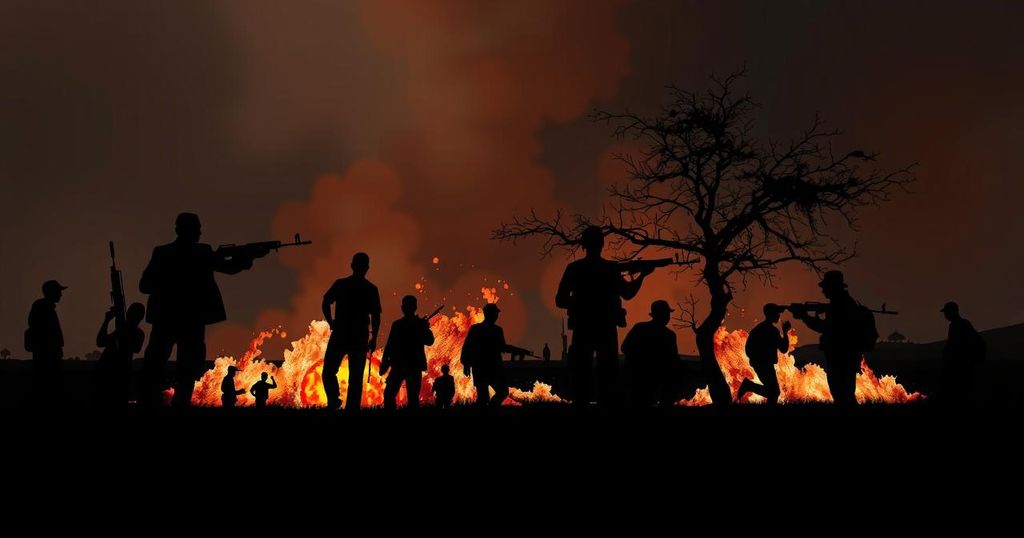The Sudan-South Sudan Relationship: Tensions Over Oil and Governance Challenges
Summary
The relationship between Sudan and South Sudan is characterized by ongoing disputes primarily over oil revenue sharing and border conflicts. Significant incidents include South Sudan’s temporary occupation of the Heglig oil region in 2012 and the nonbinding Abyei referendum in 2013. Domestically, dissatisfaction with the National Congress Party under President Bashir has spurred protests amid persistent conflict in regions like Darfur. Despite winning re-election in a contested 2015 election, Bashir’s regime faces mounting challenges as citizens demand reform.
The relationship between Sudan and South Sudan has been fraught with contention and unresolved issues since the latter’s independence in 2011. Central to their disputes is the disagreement over oil, particularly the fees associated with the transit of South Sudanese oil through Sudan’s pipelines. In December 2011, the Sudanese government resorted to confiscating South Sudan’s oil as compensation for unpaid fees, which led to South Sudan halting oil production in January 2012 and making plans for a new pipeline to avoid Sudan altogether. Consequently, both nations experienced a revenue crisis, as oil revenue was critical to their finances. In September 2012, both countries entered into agreements addressing contentious issues, including oil fees and border demarcation. Despite initial difficulties in implementing the agreements, some progress was achieved by March 2013, leading to a resumption of oil production and transport through Sudan. However, military tensions surged, particularly following Sudanese aerial bombardments of regions in South Sudan, and a noteworthy conflict erupted in March 2012 over the Heglig oil area. South Sudan temporarily occupied Heglig, exacerbating tensions, but was pressured by the African Union and the United Nations to withdraw its troops. Further complications arose in the Abyei region, where local residents unilaterally held a nonbinding referendum in October 2013, expressing a desire to join South Sudan, although this was not recognized by either government. Post-secession, Sudan faced significant domestic challenges, including fierce rebel activity in regions such as Darfur and Southern Kordofan, prompting severe government crackdowns. Those living under the rule of President Omar al-Bashir increasingly expressed dissatisfaction with the National Congress Party’s governance, culminating in widespread protests from 2012 onward. In the political arena, despite calls for reform and postponements of the scheduled 2015 elections due to pressing national issues, Bashir accepted the NCP’s nomination for re-election. The elections were marred by boycotts and logistical issues, yet Bashir won markedly, claiming around 94 percent of the vote amid opposition allegations of electoral fraud and lacking integrity in the electoral process. This period marks a critical juncture in Sudan’s political landscape, as domestic unrest persists amidst unresolved tensions with South Sudan.
The relationship between Sudan and South Sudan is deeply rooted in historical, cultural, and political complexities, stemming from their separation in 2011 after decades of conflict. The discovery of oil resources significantly influenced both nations’ economies and a source of contention. The governance under various regimes, including those of leaders like Omar al-Bashir and the challenges facing the transitional government, reflect ongoing domestic struggles, including civil unrest and regional violence. As both countries navigated their independence and sovereignty, these factors created a tumultuous environment, leading to significant geopolitical and humanitarian ramifications.
In summary, the relationship between Sudan and South Sudan remains precarious, hindered by unresolved issues surrounding oil revenue, territorial disputes, and ongoing internal conflicts. The political landscape in Sudan has continued to suffer from dissatisfaction among the populace toward governmental policies and practices, evidenced by mass protests and calls for political reform. The events surrounding the 2015 elections further highlight the struggle faced by the Sudanese people for a democratic environment amid allegations of electoral misconduct. As both nations aspire for stability, the pathway remains fraught with challenges that require careful diplomatic engagement and internal reconciliation.
Original Source: www.britannica.com








Post Comment